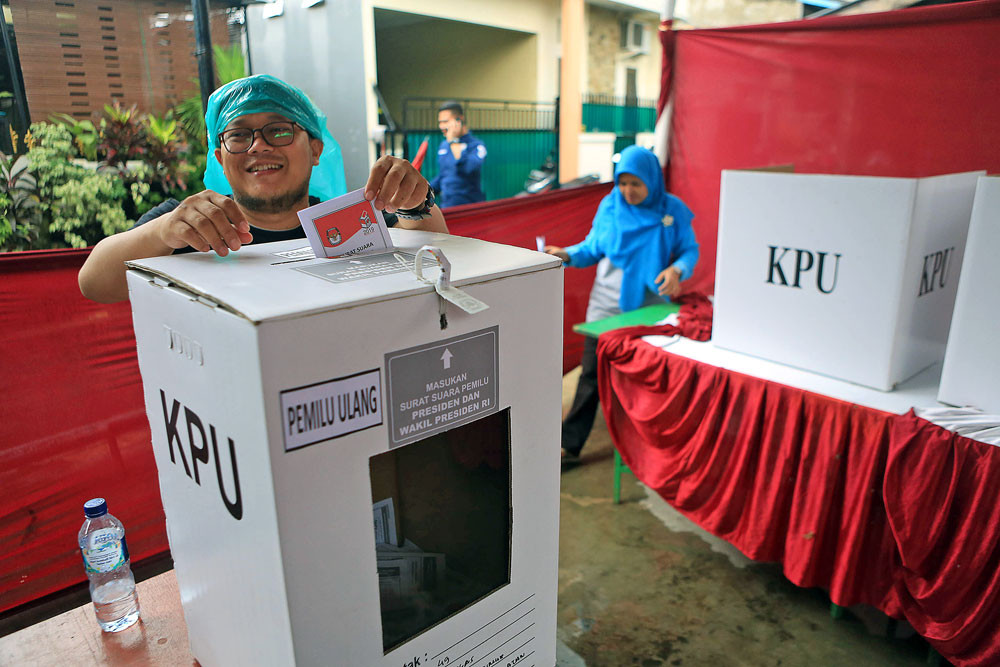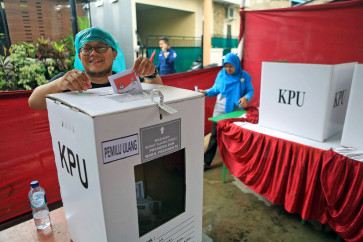Popular Reads
Top Results
Can't find what you're looking for?
View all search resultsPopular Reads
Top Results
Can't find what you're looking for?
View all search resultsPDI-P, Golkar rally support to regain power to name legislative members
PDI-P and Golkar argue that a new electoral system would reduce both vote-buying and the fierce competition among candidates within a party or against those from other parties.
Change text size
Gift Premium Articles
to Anyone
A
mid a bribery scandal that involves the ruling Indonesian Democratic Party of Struggle (PDI-P) possibly trying to illegitimately secure a legislative seat for its favored candidate, lawmakers from government parties are pushing a law amendment that would make the practice legal.
Members from PDI-P and the Golkar Party — the two largest political parties in the House of Representatives and largest supporters of the government — have rallied support for a revision to Law No. 7/2017 on elections that would change the current open-list voting system that allows legislative candidates with the most votes to automatically secure seats after elections into a closed-list system that would grant political parties the power to decide which candidates would represent them in legislative bodies.
Both PDI-P and Golkar argue that a new electoral system would reduce vote-buying and the fierce competition among candidates within a party or against those from other parties.
"We want to change the voting system back into a closed proportional system to strengthen our democratic position in which political parties are the most important pillars. It would also result in low-cost elections," said PDI-P executive Djarot Saiful Hidayat.
A closed-list system would not be new in the country. Until 1999, Indonesia still used the closed-list system, which was often criticized for making political parties too powerful in determining members of legislative and executive bodies, making them only obey party orders instead of the aspirations of voters.
In a closed-list voting system, voters only choose between the images or symbols of the political parties participating in an election listed on the ballot. Parties have the authority to decide which candidates are to be lawmakers in the House of Representatives or regional legislative bodies.
Aiming to give more powers to voters, Indonesia has used an open-list system since the 2004 elections, which is in line with the country’s direct elections for presidents and regional heads.


















